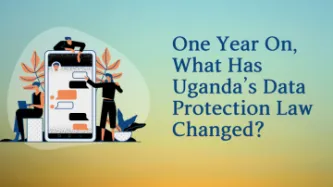Search
Content type: Examples
Public-private partnership launches biometrics identity and vaccination record system in West Africa
In July 2020 a public-private partnership programme between the Bill Gates-backed GAVI vaccine alliance, Mastercard, and the AI identity authentication company Trust Stamp was ready to introduce a biometric identity platform in low-income remote communities in West Africa. The programme will integrate Trust Stamp’s digital identity platform into the GAVI-Mastercards “Wellness Pass”, a digital vaccination record and identity system powered by Mastercard’s AI and machine learning technology,…
Content type: Examples
In order to reopen borders and restart travel and trade, the East African Community is working with Switzerland-based The Commons Project, a public trust that builds digital services for public good in order to develop an app called CommonPass. The app, which will be designed in a July sprint, will allow travellers to share a recent COVID-19 test in a way that ensures the results cannot be falsified or counterfeited while preserving their personal privacy. The digital health passport will start…
Content type: Examples
The UN’s Economic Commission for Africa has launched the Africa Communication and Information Platform for Health and Economic Action thta will use AI and big data to provide two-way communication between citizens and health authorities. It will launch in 36 countries, with more to come as others sign up. The service will potentially research 80% of Africa’s mobile users at no cost to them, and will collect health information from individuals to allow authorities to identify local outbreaks and…
Content type: Case Study
The Ugandan government has a running contract with the Chinese tech giant, Huawei, to supply and install CCTV cameras along major highways within the capital, Kampala, and other cities.
While details of the contract remain concealed from the public, the Uganda Police Force (UPF) released a statement, simply confirming its existing business partnership for telecommunication and surveillance hardware, and software between the security force and Huawei. However, it is not clear whether the…
Content type: Examples
Our partners from Unwanted Witness in Uganda wrote a formal letter to the Ministry of Information Communications Technology and National Guidance demanding for strict observance of human rights for any intended use of surveillance technologies to fight COVID-19.
In a letter addressed to the Permanent Secretary Ministry of ICT, Hon. Vincent Bagiire and copied to Minister Judith Nabakooba, calls on government to respect its human rights obligation and restrain from exercising excessive…
Content type: Examples
Ten Ugandan police officers were charged with torture after allegedly caning 38 women and forcing them to swim in mud in Elegu, a town in the northern part of the country. Police have also arrested 23 people during a raid on a shelter for homeless lesbian, gay, bisexual and transgender youth, accused them of disobeying orders by remaining in the shelter, and charging them with a negligent act likely to spread infection or disease.
Source: https://www.bbc.co.uk/news/world-africa-52214740…
Content type: Examples
The Uganda Communications Commission announced on March 22 that it would crack down on people spreading fake videos and misinformation about the novel coronavirus through social media, noting that this behaviour is illegal under the Computer Misuse Act, the Data Protection and Privacy Act, and other penal laws. UCC went on to warn in a public notice that it would arrest and prosecute violators.
Sources:
http://www.china.org.cn/world/Off_the_Wire/2020-03/23/content_75847935.htm
https://twitter…
Content type: News & Analysis
This piece was originally published by Unwanted Witness here.
Today marks exactly one year since Uganda passed its data protection law, becoming the first East African country to recognize privacy as a fundamental human right, as enshrined in Art 27 of the 1995 Uganda Constitution as well as in regional and International laws.
The Data Protection and Privacy Act, 2019 aims to protect individuals and their personal data by regulating processing of personal information by state and non-state…

